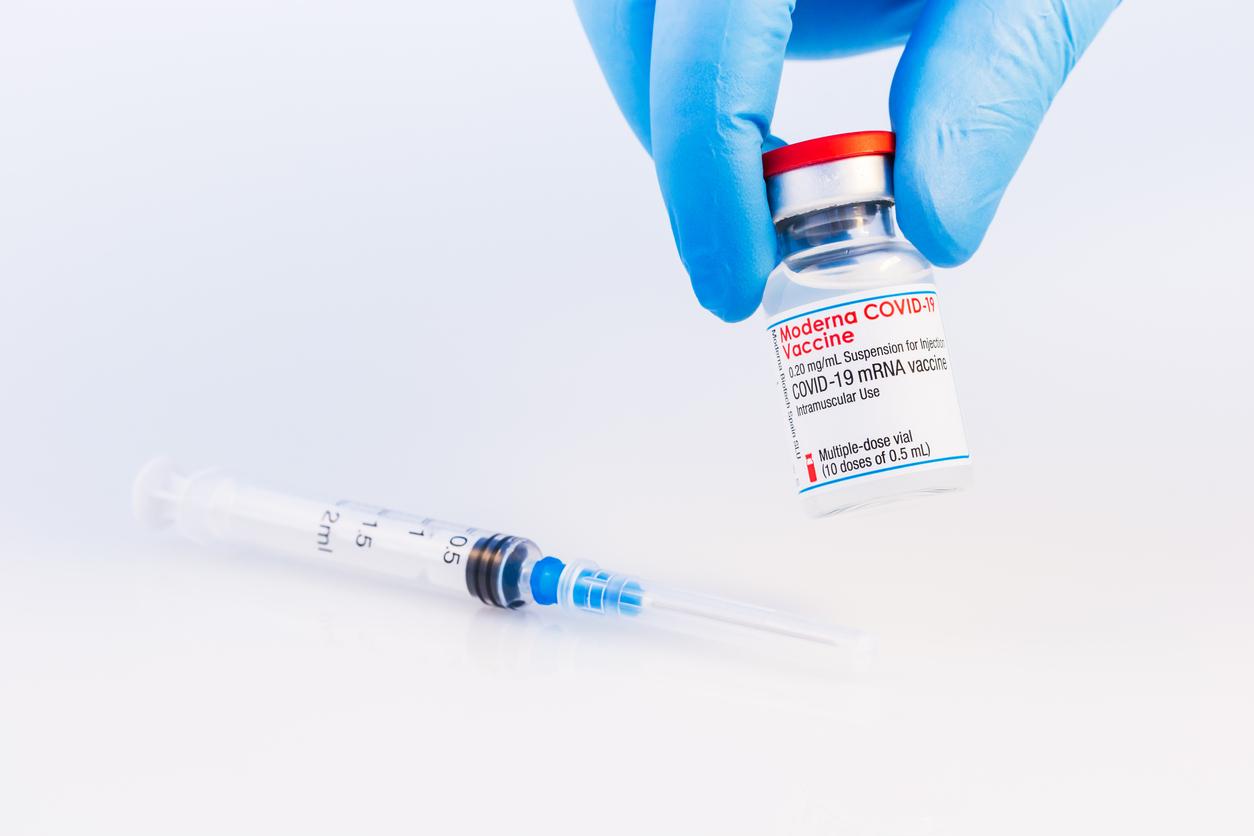Today during a meeting of the Centers for Disease Control and Prevention's (CDC's) Advisory Committee on Immunization Practices (ACIP), the group voted unanimously to fully recommended the use of the Moderna COVID-19 vaccine in adults 18 and older.
The vaccine, now called Spikevax, gained full Food and Drug Administration (FDA) approval earlier this week.
The meeting included new discussion of myocarditis risks in recipients of mRNA vaccines. The CDC's Tom Shimabukuro, MD, MPH, shared that there have been 13 deaths following mRNA vaccination from myocarditis in the United States, but upon investigation, none have been deemed to be caused by vaccination.
Most myocarditis cases following mRNA vaccine were fully resolved within 90 days of diagnosis, with patients saying the condition had no impact on their quality of life, and most cases were classified as mild according to clinicians.
With the full recommendation of Spikevax, the United States now has two fully approved COVID-19 vaccines.
The CDC COVID Data Tracker shows 64% of Americans are fully vaccinated against COVID-19, 75.5% have received at least one dose of vaccine, and 41.9% of vaccinated Americans have received a booster dose.
Wastewater surveillance to detect changes in virus levels
Also today, the CDC announced they were expanding their National Wastewater Surveillance System to include changes in SARS-CoV-2 detections in wastewater.
"These data are uniquely powerful because they capture the presence of infections from people with and without symptoms, and they're not affected by access to health care or availability of clinical testing," said program lead Amy Kirby, PhD, MPH, in a press call today. In several US communities, wastewater readings have predicted surges in daily case counts.
Thirty-seven states participate in the surveillance system, Kirby said, but the program is expected to grow significantly in the coming months.
The United States reported 281,518 new COVID-19 cases yesterday, and 2,241 deaths, according to the Johns Hopkins COVID-19 tracker.
The HHS Protect Public Data Hub shows 120,058 inpatient beds in use for COVID-19.
Pediatric vaccination rates dip
COVID-19 vaccinations among US children ages 5 to 11 have fallen to their lowest levels since the shots were first approved, Bloomberg reports. Only 31% of kids in this group have initiated a vaccination series, compared to 75% of American adults.
For the first time since the vaccines were approved in November, the number of children getting their first dose hovered around 37,000.
Children ages 6 month to 4 years are expected to become eligible for vaccination by the end of the month, but previous studies have shown the two-dose Pfizer vaccine series offers insufficient protection in this age group.
Data show respirators lower risk of infection 83%
New data published in Morbidity and Mortality Weekly Report support the use of well-fitted face masks or respirators in indoor settings to protect against new COVID-19 infections.
Researchers said respirators, such as N95s, offered the most protection, limiting infection rates by 83%. Surgical masks lowered rates by 66%, and cloth masks by 56%. The study was based on randomly selected California residents who had received a test result for SARS-CoV-2 during Feb 18 to Dec 1, 2021. Patients were interviewed about mask use.
"These data from real-world settings reinforce the importance of consistently wearing face masks or respirators to reduce the risk of acquisition of SARS-CoV-2 infection among the general public in indoor community settings," the authors said.
SARS-CoV-2 origins, job surge, and rapid tests
- The New York Times is reporting that support is building for a bipartisan commission to look into the origins of SARS-CoV-2 and to examine the US response. The commission will be modeled on the 9/11 commission.
- Despite the nationwide Omicron surge, US employers added 467,000 new jobs in January, a figure much higher than had been expected, NPR reports.
- Medicare will begin providing free over-the-counter rapid COVID tests beginning in the spring, the New York Times reports. The tests would go to some of the most vulnerable parts of the US population.



















